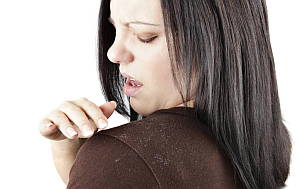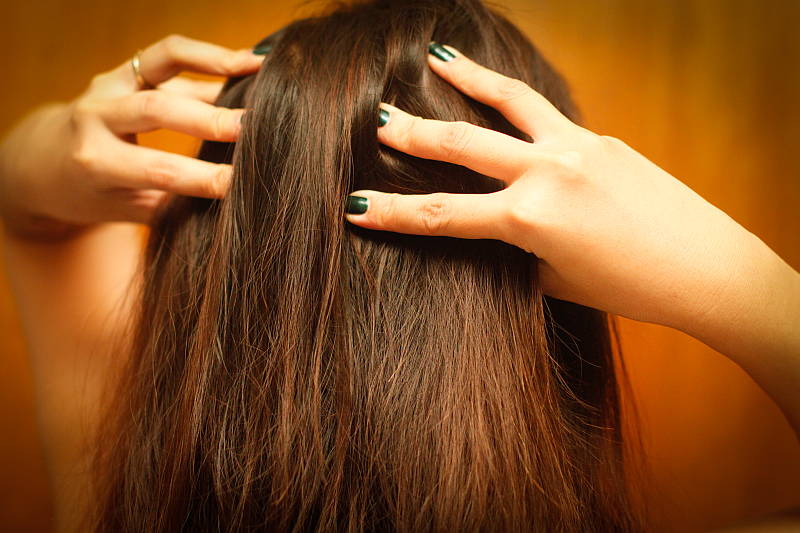About dandruff
Dandruff affects 1 out of every 2 people at some point in their life. It presents as an itchy scalp, associated with white flakes on the scalp and in the hair.
Risk factors
Dandruff can affect anyone. However, it is more common at certain ages and with some medical conditions. Some of the risk factors for this condition include:
- Gender: males tend to be more commonly affected by dandruff than females
- People who have oily skin
- Age: dandruff tends to start in young adulthood in most people and continues into middle age
- Parkinson’s disease
- HIV/AIDS and other immune system disorders/immunocompromised people
- Infrequent shampooing/washing of hair

Cause
Dry skin is a cause of dandruff. This can be caused by over washing with harsh shampoos, or irritants such as hair dyes and sprays. A contact-allergy may also present with itch and scale. Skin conditions that cause the scalp cells to turnover and be replaced more rapidly are associated with dandruff. The cells can aggregate together and flake off the scalp in larger, more noticeable clumps.
Causes of inflammation and dryness in the scalp include:
- Eczema
- Psoriasis
- Seborrhoeic dermatitis
- Contact dermatitis (e.g. allergy or sensitivity to certain hair products can irritate the scalp and lead to dandruff)
Treatment
Dandruff is commonly treated by using special anti-dandruff shampoos that are available at pharmacies and supermarkets. There are different types of shampoos with different active ingredients. Some of the agents used in the shampoos include:
- Coal tar – coal tar helps to slow down the process of cell turnover on the scalp. It slows the growth of any bacteria, and loosens and softens skin scales. It is useful for people with psoriasis and seborrhoeic dermatitis.
- Anti-fungal treatments – contain ingredients such as ketoconazole, selenium sulfide, ciclopirox, which help to kill fungi. This treatment works best if there is an overgrowth of a yeast called malassezia furfur. There is a good scientific evidence base for the efficacy of these shampoos.
- Salicylic acid – salicylic acid can remove scale from the scalp, but also increases the risk of scalp irritation; so it is important to also use conditioner with these shampoos. The salicylic acid causes the skin in the scalp become soft and peel.
- Traditional medicine shampoos – there are many different traditional medicine shampoos available, such as egg oil shampoos. However, the evidence for the efficacy of some of these shampoos is not always strong.
If you have any questions or concerns about dandruff, contact us for an appointment. Contact us today.



